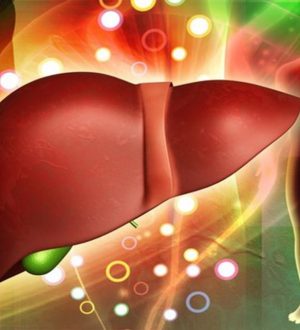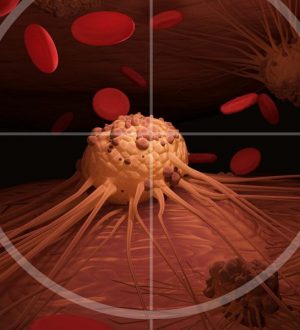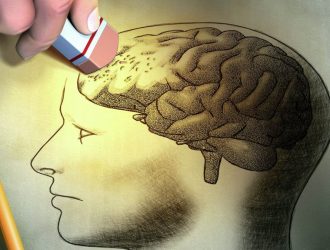
Let’s talk about the unexpected benefits of magnesium. Magnesium is a very important mineral. Magnesium is in hard water, mineral water, and leafy greens.
Magnesium is not just essential for humans, but for plants too. Chlorophyll is like the blood of a plant, and a magnesium deficiency can inhibit a plant’s ability to make chlorophyll.
Chlorophyll is similar in chemistry to our blood. The magnesium in the chlorophyll causes the leaves of a plant to look green, and the iron in our blood makes it look red.
There is a condition called chlorosis in plants caused by a magnesium deficiency. Chlorosis in humans is anemia and is caused by an iron deficiency. But, a person with anemia may even look a little green.
Contents
Calcium and magnesium in our life
Calcium and magnesium it’s in a very absorbable form. It’s in bicarbonate. When you heat water those bicarbonates turn into a carbonate form which makes them absorb less in our bodies and you would see it when you make your tea when you heat your water. You’ll see these white little specks at the bottom of the pot. Our bodies do absorb these bicarbonates very easily. Hard water and mineral water create a source of magnesium as well as calcium and of course when you soften the water you take out these minerals. Some really interesting studies show that hard water is very good for your cardiovascular system and soft water is not.
Now one little side note about that condition called chlorosis in plants. One way to develop this condition is to overwater the plants because all these minerals can leach out. The same thing happens when we drink too much water, especially without minerals. We dilute the minerals we have in our body and that creates all sorts of issues with our heart, our nerves, and our muscles. However, if you’re not drinking hard water or mineral water to get your magnesium from leafy greens. Of course, an average person only consumes like one and a half cups of vegetables per day but you want to beef that up.
The unexpected benefits of magnesium
- It relieves muscle tightness. We know that magnesium deficiencies will create cramps of the muscles. But if you have tight muscles which are different than a cramped muscles that can be a magnesium deficiency.
- It boosts energy. Magnesium is intimately involved in making ATP, that’s the energy currency of the body. So your energy level is dependent on magnesium. If you don’t have enough you’re going to be kind of tired all the time.
- It supports vitamin D bioavailability. You need magnesium to allow vitamin d to work. So if you’re deficient in magnesium you can take all this vitamin d and it doesn’t seem to work.
- It helps prevent calcium from depositing in the soft tissues. Magnesium prevents calcium from depositing in the wrong places in your body so it works similar to vitamin k2.
- It can help relieve migraines.
- It supports your friendly bacteria. Having enough magnesium will support your friendly bacteria. If someone is magnesium deficient like two-thirds of the world’s population that can negatively affect the
microbiome the friendly bacteria. - It can potentially help reduce paresthesia. With enough magnesium you can avoid having pins and needles and numbness that type of thing either in your lips, your fingers, or the bottom of your feet which is called paresthesia.
- It helps counter cortisol. Let’s say your cortisol is high and that affects your sleep patterns. Magnesium can help. Magnesium is very important in the regulation of cortisol. Excessive cortisol symptoms could be a magnesium deficiency. This is why magnesium helps people with stress.
- It helps balance the parathyroid hormone. Having enough magnesium will keep your parathyroid functioning at its optimum level. The parathyroid hormone helps to regulate calcium. If you’re low in calcium the parathyroid hormone will increase to help elevate calcium. What if you’re deficient in magnesium? The parathyroid hormone will also increase to help you retain more magnesium. So any symptoms where you have high parathyroid hormone could be a magnesium deficiency.
Causes of a magnesium deficiency
- Not consuming leafy greens;
- Fluoride consumption in tap water can create a magnesium deficiency. Fluoride medications can also do it;
- Refined grains;
- Refined sugar;
- Low hydrochloric acid in your stomach can create a problem;
- Stress;
- Diabetes. This is why magnesium is so important to stabilize your blood sugars;
- Alcohol;
- Malabsorption;
- Now there are quite a few medications that can also create a deficiency of magnesium, um diuretics PPIs or antacids, statins, antibiotics.
Medications that can potentially cause a magnesium deficiency
- Diuretics
- PPIs and antacids
- Statins
- Antibiotics
- Birth control pills








Very good information 👌 I take Magnesium everyday due to being a chronic migraine sufferer and my Neurologist started me on it. It has done wonders. Also, I live in the country and have always loved water from well best. I do run it through a purifier pitcher, but good to know it’s beneficial.
What kind of magnesium
Magnesium oxide with the power in the capsule form. I no longer have to use a preventative med at this time. My daughter was put on the powder kind by her Neurologist and she said it made a huge difference. My migraines are with aura and are often triggered by the barometric pressure. So season changes used to really affect me. Now I’m mostly battling sinusitis.
There was a tightness in my neck/ across my shoulders that was soooo annoying even deep massage couldn’t alleviate it. I was on the verge of asking my DR for muscle relaxers. Went to E.R.,something unrelated, and found out that I was deficient in magnesium. After 1 week of taking magnesium supplement, the tightness went away!
When a pregnant woman has to be induced they give magnesium to hep relax the body. I appreciate this. I know many people ignore their general nutritional profile. I like Cronometer for getting a good idea. They really show you a lot in the way of nutrients. I am a lover of green leafy foods. Nothing tastes better to me than a nice serving of spinach, or Kale steamed in chicken broth. MMMMMM
Let me say that since taking magnesium and potassium, I do not get headaches anymore!
So glad I took advice of my Functional medicine nurse.
I want to share my story: When I was 18, I started to experience this electric shock that felt like it traveled through my brain. It lasted for 1 month & I thought I was going to die. A side note, I’ve been Vegetarian my entire life. The only thing that relieved the pain were perscription pain killers. UNTIL, my Mom explained to the Pharmacist what was happening and they suggested Magnesium. I kid you not, my symptoms were GONE within 12hrs! Turns out I was experiencing neck spasms as a result of a Magnesium deficiency.
Truth! magnesium is incredible 🌞 a helpful way to know if you are magnesium deficient is some symptoms you may feel on a prolonged basis such as arthritis, joint pains, constipation, anxiety, muscle cramps, eye twitching, hiccups, restless leg… of course every person is different and getting to know yourself is a must as well… these are just some things that come up for many people as signals from the body